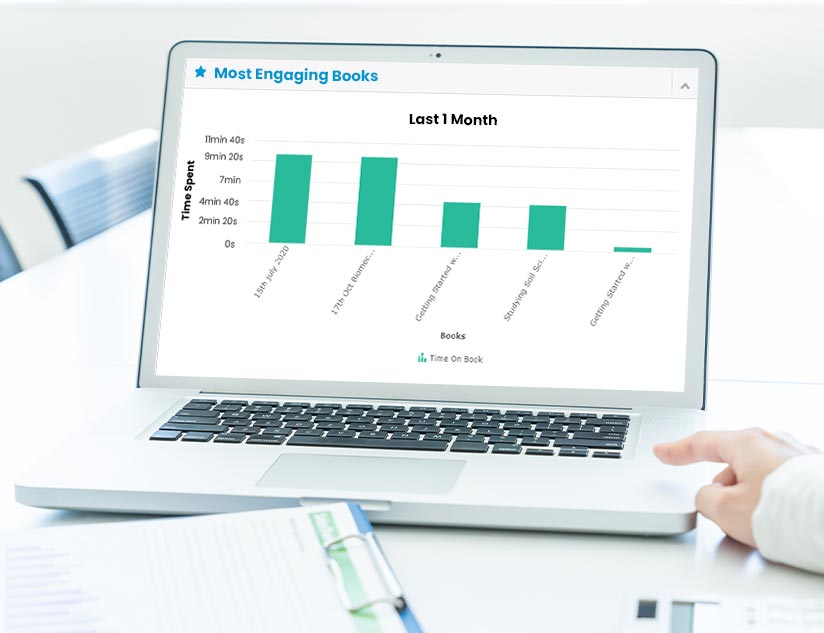Over the past decade, technological innovations have revolutionized the teaching and learning process. While instructional design and delivery of content is important, special emphasis has been laid on learner assessment and feedback as well. Data-driven insights are crucial to the learning process today and there is mounting evidence to support this. In the 2020 L&D Global Sentiment Survey, conducted on 2,278 people from 86 countries, a majority said that learning analytics will take the center-stage in global L&D trends going forward. While this survey pertains to workplace learning, learning analytics is making its way into the education sector as well.
Learning Analytics at the Center of the Post-Pandemic Digital Classrooms
Personalized learning has been identified as a crucial element of 21st century education. Institutions have been showing an increased interest in EdTech tools that can help them offer a flexible learning environment, to help students learn at their own pace, while teachers are leveraging these tools to drive greater student engagement. While this was majorly concentrated in higher education, the COVID-19 pandemic has accelerated the trend into the K-12 classrooms as well.
Now, more than ever before, the importance of “effective” online learning has come to the forefront. In the absence of face-to-face classroom interactions, analytical insights into students’ learning behavior will prove critical in driving positive learning outcomes.
In 2021, we expect to see greater innovations in EdTech tools, training and flexible curriculum. Traditional classroom outcomes are expected to be merged with stackable credentials, digital badges and certificates. Learning analytics will occupy center-stage in all these efforts.
Learning Analytics in K-12 Education
In the past, data analysis has been ad-hoc at best, due to inaccuracy and incompleteness. Now, the amount of data is huge, as student interactions with learning management systems or content delivery platforms are leaving behind huge digital trails online. The demand for insight has risen exponentially, so that educational publishers and educators can make informed decisions regarding arming students with critical skills to compete in the digital economy.
In this context of enhanced learning, two trends that will continue to make waves are AI and Big Data. The latest technologies help collect relevant student data (browsing activities, quiz results, course completion times, logging on and off times and more) and analyze it efficiently and accurately. It is also not just about data, but the presentation of that data in form of easy-to-understand graphs, charts, percentages and more. This is what will drive informed decision making.
Pushing Towards Self-Regulated Learning
To provide the best support to learners, advanced digital learning platforms will use analytics to provide relevant and personalized learning pathways. By providing actionable insights to drive individual learning experiences, this trend aligns with the vital aspect of “continued learning and improvement.” Students will be more motivated in an environment that appreciates and considers their individual needs and preferences in learning.
Data-Driven Insights Driving Teaching Strategies
If learners expect a personalized learning environment, where content delivery and structure is tailored specifically for them, educators will also take an analytical approach to learner engagement, achieving learning objectives and enhancing teaching outcomes.
Some ways in which learning analytics in K-12 and higher education will help teachers are:
- Tracking student engagement levels: Teachers will be able to track what types of content and content formats are the most engaging for students. Insights like time spent on each chapter or lesson, the number of times a video has been seen or an audio file has been played, or the device on which students access lessons the most, can help achieve greater content that is more immersive.
- Delivering customised lessons: It will be possible to track the learning patterns of each student. Accordingly, teachers will be able to create lessons based on their strengths and weaknesses, enhancing their learning process. With detailed performance analytics for each student, teachers will be able to identify academically weaker students and strategize remediation and corrective actions.
- Revise teaching methods: A cloud-based content delivery platform makes it very easy to update content and add interactive, multimedia and gaming elements. If teachers find a topic that students find difficult to understand, they can revise their teaching strategies accordingly. They can choose to include something new to make it easier to understand a topic, such as an image or explainer video.
- Sharing student reports with parents and administrators: Teachers will be able to share their students’ learning progress reports with their parents, as well as other teachers and administrators. After all, learning is not a siloed process anymore, but a connected and integrated experience of a student with an institution, throughout their academic career.
Education is not only about imparting knowledge, but also assessing the efficacy of the teaching methods. MagicBox™, an award-winning, SaaS-based, cloud-hosted, end-to-end digital publishing and next-generation mobile distribution platform is armed with a powerful analytics engine that publishers and educators can use to channel their efforts in the right direction.
With the help of this platform, educational institutions and publishers can gain key insights into the most engaging content, content that does not work well and much more, without needing additional resources to make sense of vast amounts of data. This then allows them to fine-tune their content strategy for best results.
Looking for a way to capitalize on custom analytics and reporting? Contact us to learn how MagicBox™ can help.













